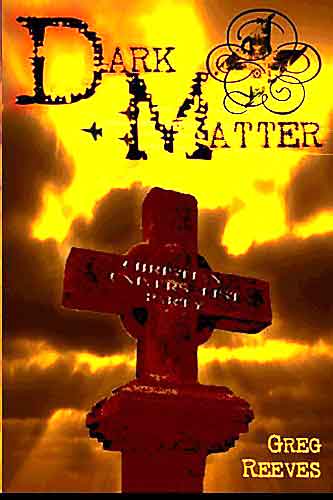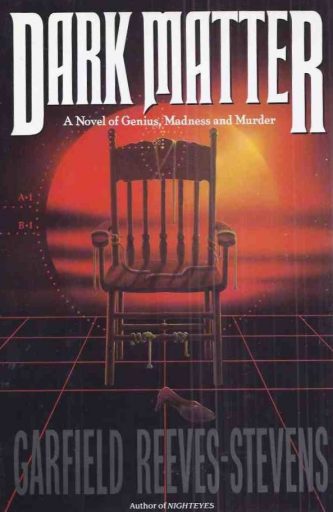 By Greg Reeves AKA GARFIELD REEVES-STEVENS (Doubleday; 1990)
By Greg Reeves AKA GARFIELD REEVES-STEVENS (Doubleday; 1990)
Unquestionably one of the most unique novels to emerge from the nineties serial killer boom, and certainly the only such novel to combine mass murder, quantum physics and a heartfelt dissertation on the ethics of science. DARK MATTER (not to be confused with the more famous Blake Crouch novel of the same name), like its talented author, deserves to be better known.
The opening chapter is a gut-wrencher, depicting a truly horrifying bout of makeshift cranial surgery performed on an unwilling—and fully conscious—young woman by a brilliant scientist who insists on explaining the particulars of quantum physics to her while going about his nasty work. That scientist is Anthony Cross, who seeks to uncover nothing less than the mystery of creation, and is using murderous experiments to do so.
Assisting him is the seductive Charis Neale, who serves as both mother figure and lover to Anthony, acting as a buffer between him and the real world. She leads a vast government-funded organization dedicated to covering up Anthony’s crimes and furthering his experiments, an organization with tentacles that stretch well into the police department.
That last point is uncovered by Kate Duvall, a police inspector—and, not incidentally, a black woman—who investigates Anthony’s crimes, and encounters all sorts of obstruction along the way. Yes, the plucky-young-woman-inspector device is a bit of a cliché, as is the subsequent romance that Kate, unaware of Anthony’s true nature, initiates with the killer. Garfield Reeves-Stevens does what he can to make this material seem fresh, but can’t overcome the been-there-done-that feel.
That’s something that cannot be said of the book’s final third, in which Anthony’s experimentation finally bears fruit, and the proceedings take a sharp turn into science fiction territory. This portion comes complete with a wealth of scientific terminology that will doubtless sail clear over the heads of many readers.
A repeated motif is the claim that the average person doesn’t understand the particulars of what scientists do, which allows them to operate outside the bounds of morality—a fact the author appears to be trying to conclusively demonstrate in the final pages. Some readers will no doubt claim this portion of the novel is too radical a departure from the Thomas Harris vibe of the rest of the book, but a careful reading of the earlier pages shows that the author has indeed laid the groundwork adequately for his eventual leap into the quantum-verse.

